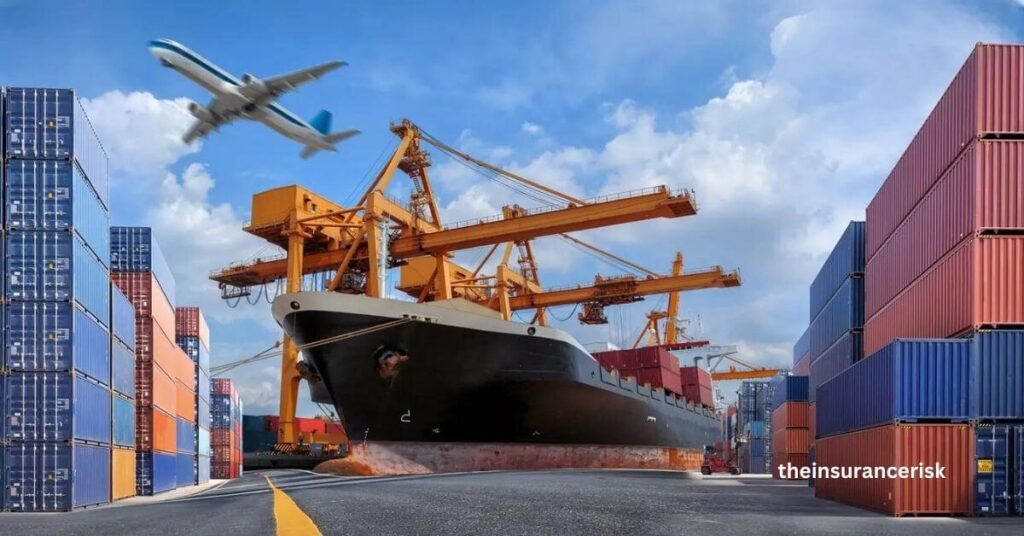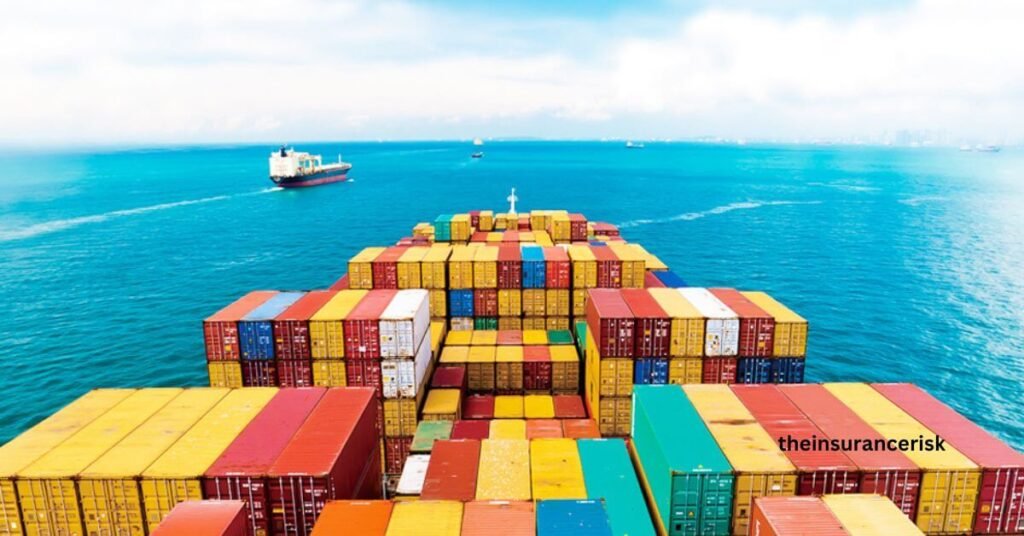Cargo Liability Insurance: Safeguard Your Shipments and Business Assets
The law mandates transport companies to have basic carrier liability insurance. However, these policies often have limitations, making shippers question their value. We explore cargo insurance options, benefits, and how data analysis can enhance coverage.
Cargo Insurance
Marine cargo insurance is a crucial shield for your goods during transit, offering protection against physical damage, theft, and general average. It’s important to note that this insurance is not automatically included for all shipped goods and can vary by region. To secure comprehensive coverage, shippers and consignees can purchase policies from diverse sources in the insurance market, such as niche providers, large brokers, local agents, websites, and freight forwarders.
I often compare cargo insurance to car insurance. You pay to cover your car for accidents and theft because you cannot predict or always avoid these things. Even with years of no issues, you are still willing to protect your car. Opting for cargo insurance follows the same principle. By paying a small fraction of the value of your goods, you are safeguarding yourself for the day when the unexpected happens.
The Limitations of Cargo Insurance
Cargo insurance has its limits, and not all losses are covered. There is not a one-size-fits-all cargo insurance for transport companies. Various B2B options exist, like all risk or legal liability, but limitations remain within these policies even with these names.
In essence, it’s crucial for shippers to clearly state and record the value of their cargo to handle potential issues like loss or damage. Companies facing a claim should consult with a legal professional or insurance agent to explore insurance and coverage choices if they arise.
Cargo Insurance Is Requirement Or Not
Buying cargo insurance is not mandatory, but it’s highly advisable to safeguard your goods from potential risks, some of which can be disastrous. It would help to consider the insurance costs of possible losses and collateral damage that might occur without insurance.
It’s important to note that even if you establish legal liability on the part of an ocean carrier, their maximum liability is USD 500.00 per package or customary shipping unit, or the actual value of the goods, whichever is lower. For air freight carriers, the liability is only 19 SDR per kilo (around USD 24.00). Given that most freight has a much higher value than these rates, you could incur a significant loss of the cargo’s value without proper insurance.
Liable For The Damage
Certain damages, such as those caused by fire, acts of God, strikes, accidents at sea, and insufficient packing, fall outside a carrier’s liability. Proving legal liability for your freight under these circumstances can be challenging.
Moreover, various companies handle your freight during storage and transit, making it difficult to trace where damage occurred or establish liability. With a cargo insurance policy, you’re covered for these losses, eliminating the need to prove liability.
Types of Cargo Insurance On The Market
Cargo liability insurance is accessible for both international and domestic transportation. Although standardizing and controlling coverage in foreign countries can be challenging, you can usually extend international protection to various policy types.
Land Cargo Insurance
Cargo liability insurance for land transportation covers trucks and other vehicles on the road. These plans protect against damage, accidents, theft, and other risks associated with transporting goods on land. Insurers provide policies with different lengths, coverage amounts, and conditions based on the seller’s or shipper’s needs.
Marine Cargo Insurance
Marine cargo insurance safeguards the transportation and logistics of goods by air or sea. These policies protect companies from damage caused by:
- Loading/unloading damages
- Weather contingencies
- Theft and piracy
- Loss and in-transport damage
Beyond the general coverage, policies are tailored to specific situations, each with advantages and disadvantages for the policyholder.
Open Cover Cargo Policies
Open-cover cargo policies are ideal for businesses needing versatile coverage for different shipments. There are two types: renewable and permanent. Renewable policies let you repurchase coverage regularly, while permanent policies have set periods but allow unlimited shipments during activation.
Specific Cargo Policies
Specific cargo policies, often known as voyage policies, are tailored to cover a particular category of shipment or item. It’s crucial to note that these policies have limitations and apply only to specific cargo shipments.
Contingency Insurance Policy
Contingency insurance comes into play when customers are responsible for insuring their shipments against theft, damage, or other losses. For instance, some products are prone to damage during delivery, but customers may refuse to sign for them, thinking they can avoid liability. Shippers and sellers can take legal action in civil court to address this, but this can be expensive. Contingency insurance provides a cost-effective solution to avoid costly disputes.
The Benefits Of having Cargo Insurance
Cargo insurance safeguards shipments during transit by land, air, rail, courier, and sea. Explore the following aspects to understand the advantages of cargo insurance coverage:
All-risk Coverage
All-risk coverage shields against significant damage or loss caused by external factors beyond the shipper’s control. Insurable situations may encompass:
- Damages due to poor packing and handling
- Infestation of insects or vermin
- Cargo and shipment abandonment
- Customer refusal
- Employee theft and dishonesty
All-risk insurance plans are flexible. Your insurer can tailor options to match the specific goods you ship and your transportation mode.
General Average Coverage
General average coverage is a basic insurance policy for shipments on water. However, it only covers partial losses, which may disappoint the policyholder. The policy mandates other cargo owners to share the financial burden for damages that happen at sea.
Warehouse-to-warehouse Coverage
Warehouse-to-warehouse coverage is special as it shields against transportation liabilities when moving goods between warehouses. Insurance companies cover the cargo holder’s goods only during the specific warehouse transportation. The coverage starts and ends at the door.
It Would Help If You Took On A Cargo Insurance Policy Or Not.
Firstly, cargo insurance is necessary for transportation, logistics, or shipping companies. Imagine the impact on your bottom line and reputation if an entire shipment is damaged or lost without a way to recover liabilities. It’s a challenging situation. Even experienced firms can struggle with insurance disconnects. Shipping companies bear their share of losses, so protect yourself against liability.
The optimal time for cargo insurance is when buying insurance for each product and making claims for losses or damages is less than the cost of simply replacing the goods.
Final Thoughts And Considerations
The most conscientious and reliable shipping companies invest in insurance for their protection and customers. They use data logging, monitor circumstances, and analyze data to understand their insurance needs before consulting with a broker.
Similar to adopting new software or technology, partnering with a reputable provider enhances your chances of safeguarding every aspect of your service offerings.









